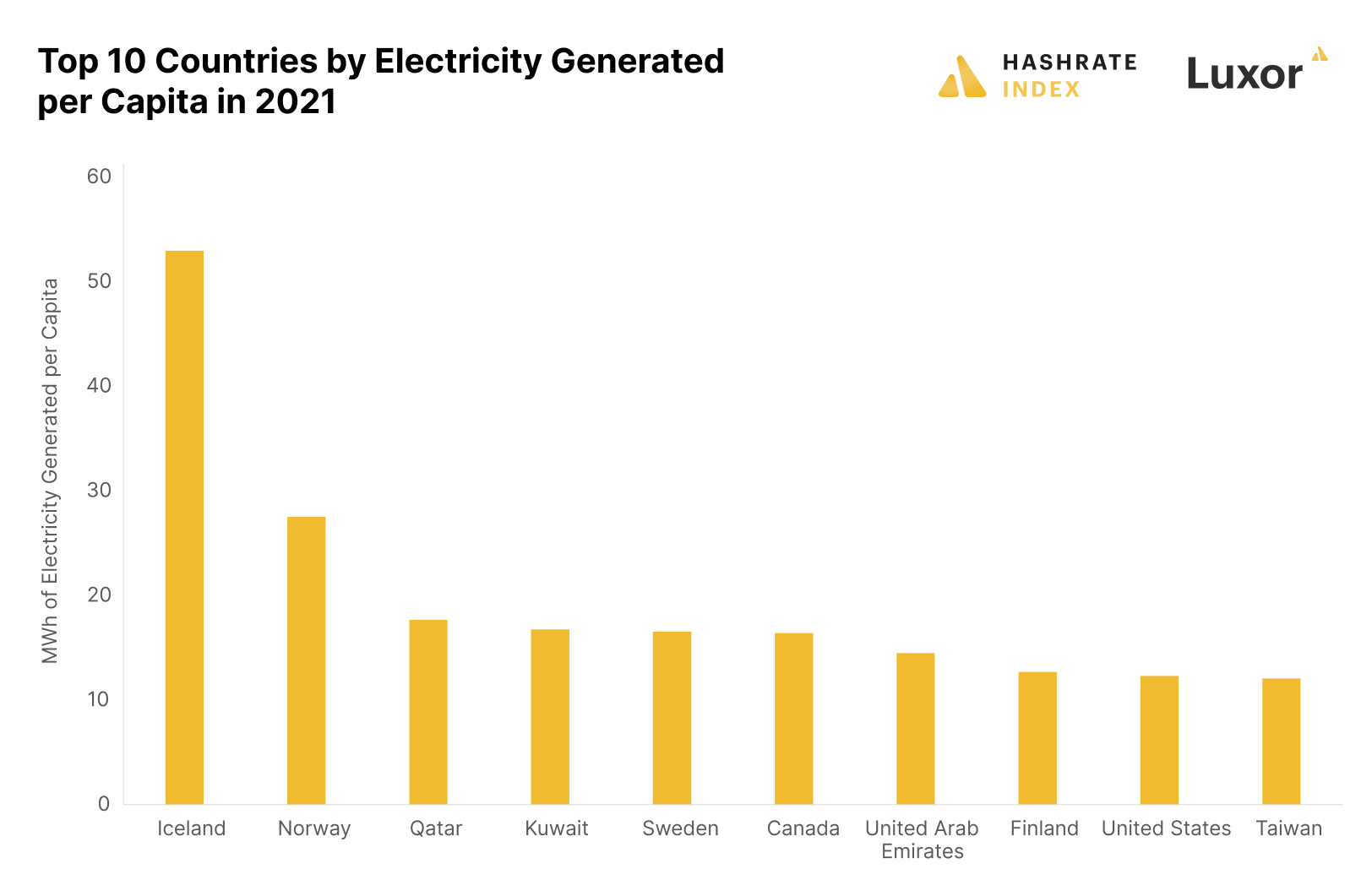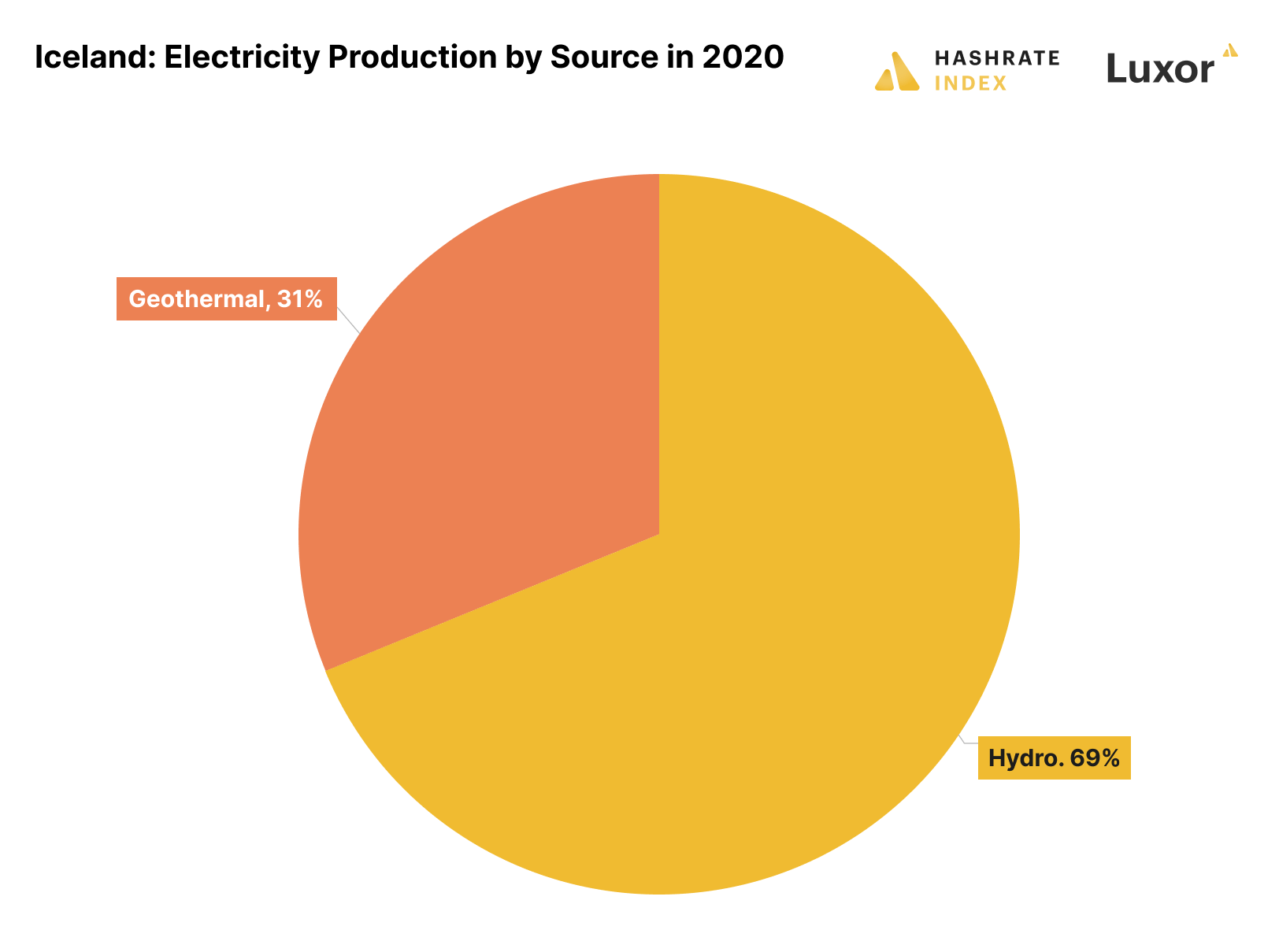With its vast renewable energy resources, Iceland has emerged as a prominent destination for Bitcoin mining.
However, according to new research by one of the industry’s leading watchdogs, the country has maxed out at around 120 MW of energy for Bitcoin mining, which makes up around 1.3% of the global Bitcoin hash rate.
What makes Iceland such a mining powerhouse?
Thanks to Iceland’s vast hydro and geothermal energy sources, the country has managed to dedicate 120 megawatts of electricity to Bitcoin mining, which accounts for only 1.3% of the global hash rate. But with a population of only 370,000, Iceland is the world’s largest producer of hash rate per capita.
Iceland’s outsized energy dominance
With an abundance of electricity resources, Iceland is the world’s most electricity-rich country, producing nearly twice as much electricity per capita as Norway, the second country on the list.

Iceland and Norway are the only two countries worldwide that rely entirely on renewable energy sources for their power needs.

The recent surge in BTC prices has boosted mining profitability by 35% since the start of 2023. As the network hash rate reached a new high of 318 exahashes per second (EH/s), Bitcoin mining has gained momentum not only in Iceland, but worldwide.
Political stability
A big part of what makes Iceland’s attractiveness as a mining hub is that it is widely regarded as one of the most politically stable countries globally.
“Domestic companies involved in mining in Iceland include Greenblocks, Advania Data Centers, and Borealis Data Center. In addition, many international players currently operate or were previously there, like Genesis Mining, Bitfury, Hive Blockchain, and Startmining.”
The Icelandic government is supportive of Bitcoin mining, recognizing its potential to attract foreign investment and create employment opportunities.
However, the government has also expressed concern about the environmental impact of Bitcoin mining and has urged the industry to be more sustainable by adopting more energy-efficient technology.
Nevertheless, some of the main players in the Bitcoin mining industry in Iceland have been operating for 10 years, largely without any significant issue from authorities.
Iceland is hitting mining limitations
The factors that make Iceland such an enticing environment for Bitcoin miners have also had an impact on supply/demand.
“Iceland’s electricity supply might have seemed endless a few years ago, but it has gradually become scarcer over the past few years. Icelandic miners report that it is nearly impossible to get electricity allocation for new data centers.”
This means that the industry has limited growth potential in Iceland and will likely remain and the 120 MW year for “the foreseeable future.”
The post Iceland’s abundance of renewable energy boosts Bitcoin hashrate appeared first on CryptoSlate.







